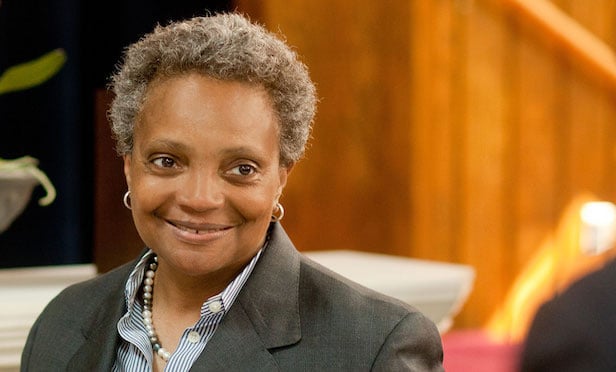CHICAGO—In an effort to reduce traffic congestion in the city, Chicago Mayor Lori E. Lightfoot announced that the city will impose a new congestion tax on ride hailing companies (Uber, Lyft), which she blamed in part for contributing to worsening congestion in the central business district, Near North and West Loop areas.
The regulations will place a premium on single rides and during peak periods when the city faces high levels of gridlock on downtown roadways, while offering a decreased rate for passengers opting for shared rides in the neighborhoods.
The city estimated the new congestion tax will generate approximately $40 million in new revenue. On Friday, the mayor also announced the city will earmark $20 million from the congestion tax for the Bus Priority Zone Program—a joint Chicago Transit Authority and Chicago Department of Transportation initiative designed to improve bus travel times and make service more reliable on seven core routes.
In recent years, ride-hailing use in Chicago has grown by 271% and continues to steadily increase, city officials say. "Our city, like many others across the nation, has experienced skyrocketing congestion growth due in part to the rapid growth of ride-hailing companies, making it increasingly difficult for those who rely upon Chicago's streets for commerce or transportation, and plaguing our downtown," said Mayor Lightfoot. "Using an evidence-based approach to combat our congestion challenges, Chicago is taking these first steps to improve mobility and further our goals of ensuring sustainable, affordable and reliable access to transportation options in every neighborhood."
Based on peak congestion locations and times, the city is proposing a new variable Ground Transportation Tax structure. Under the current GTT, a flat rate of $0.60 is assessed per trip citywide, and a $5.00 flat rate is assessed per trip in special zones (the airports, Navy Pier and McCormick Place). As part of an effort to incentivize shared rides to combat both congestion and rising vehicle emissions in Chicago as well as encourage use of higher efficiency modes of like transit downtown, the city is proposing the following progressive structure:
• Decreasing the GTT on all citywide shared ride-hailing trips from $0.60 per trip to $0.53 per trip.
• Increasing the GTT on all citywide single ride-hailing trips from $0.60 per trip to $1.13 per trip.
• Assessing a downtown zone surcharge, placing an additional $1.75 per trip for single rides and $0.60 per trip for shared rides.
• No changes are proposed to the current $5 special zone fee, the $0.10 per trip accessibility fee or the $0.02 per trip administrative fee.
Representing areas among the highest density of trips citywide, the proposed structure will target ride-hailing trips in the downtown zone during the hours of 6 a.m. to 10 p.m. on weekdays, when congestion is most prevalent. Shared trip requests on the south and west sides can range upwards of 50% of all requests, in comparison to less than 30% on the north side and downtown, city officials state.
In addition to the Bus Priority Zone Program, the congestion tax funding will support the city's efforts to ease congestion across the entire city, including commissioning an independent analysis to conduct a comprehensive congestion pricing study that will look at every community and how congestion impacts it.
© Touchpoint Markets, All Rights Reserved. Request academic re-use from www.copyright.com. All other uses, submit a request to [email protected]. For more inforrmation visit Asset & Logo Licensing.








